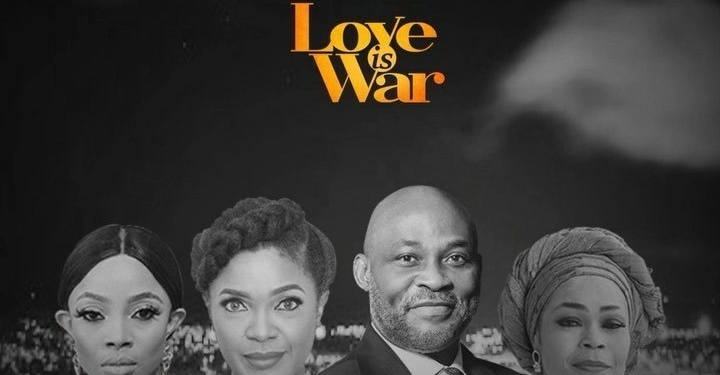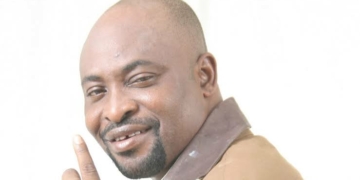“Is love really war?” This is the question fans have in mind before stepping into the theatres to see the latest Omoni Oboli flick, ‘Love is War’.
The name is a nostalgic take from old Nollywood, where movie titles are bullet points and explain the plot without trying. This explains the skepticism fans have as some assume that the film is about lovers facing crisis.
The assumption is not wrong. In fact, the movie, starring Omoni Oboli and Richard Mofe Damijo (RMD) as a couple, unravels a plot with them at loggerheads but not for the same everyday reasons fans may suspect.
Instead, Oboli opens a conversation on identity crisis Nigerian women face when they marry husbands who are not from the same states as theirs. It also critically examines the lopsidedness of the electoral system in some quarters.
The plot follows Mr and Mrs Phillips, who end up contesting against each other in the governorship race, a move that threatens their marriage and puts the life of their child in danger.
‘Love is War’ wins its first point for plot clarity as it is easy to follow the story and relate with the pains of each character.
The audience can follow the love story and it helps the dilemma of these characters sink better.
Although the onscreen couple need more believable chemistry, it is easy to see how the choices they both make hurt them emotionally. By the middle of the film, viewers had subconsciously picked teams, rooting for their favourite contestant to win.
As actors, Oboli and RMD bring in their A-game for the most part of the film. It is important to note that contrary to recent Nollywood trends, the film does not pack on too many actors and too many main/supporting characters. It is easy on the eyes.
The main catch of the film is not that Mrs Philips had no identity as to the state she could run elections, it is of the processes she had to undertake in the first place to get the nomination and run the campaign.
‘Love is War’ wins its second point for telling a story that audiences love to see, in a language that they understand. Audiences like to be told secrets, they want a third eye into what happens behind closed doors.
The film seems to expose the political circle in Nigeria and the non-veracity of its claims do not make it less enjoyable. Oboli is mirroring a campaign structure everyone thinks they know so well.
The realism is intensified by the wonderful costumes. The production team in this film paid attention to details. From the design of the campaign podiums, offices, campaign T-shirts, banners, fliers, uniforms and the set up, it is Nigerian election galore.
Apart from the costumes, cinematography tells a story between the lines with the right shots, frames and lighting. The camera angles are not showing off and distracting, rather they enhance the already-good storytelling.
In all, there is no film that has shown Oboli’s improvement as a director and filmmaker like ‘Love Is War’. Since the talented actress delved into filmmaking, she seems to have created a path in making advocacy films.
All the films , touch on girl- child advocacy. From ‘Wives On Strike’ to its sequel. ‘Love is War’ in itself, is an advocacy for women and families.
It attacks the issues married women face when they have to take on two states – hers and her husband’s.
More so, it fights for support for women’s ambition and kicks against the relegation of women to certain government roles in spite of track records. Beyond this, it is a love story that tells the tale of a family hinging on the balance as ambitions rip through it.






Discussion about this post